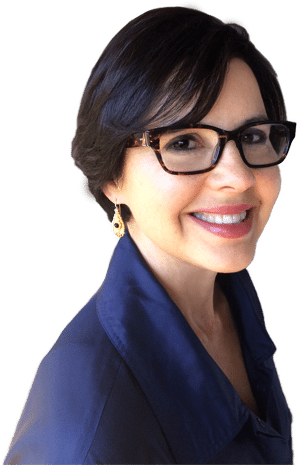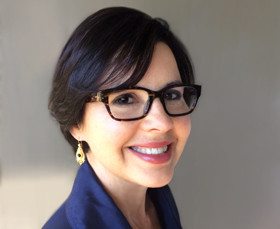Frequently Asked Questions and Answers
Question
What can I do to help my son who’s having a difficult time learning to compromise with other children by taking turns and sharing? He gets angry or has a tantrum when he doesn’t win a game in play with other children. How can I help him learn to take turns and compromise with others?
Answer
The group program structure uses positive reinforcement to teach your child new ways of handling frustrations. When children are in a group of peers learning new coping skills, they frequently act out whatever issue they are struggling with in school and/or at home. We have an opportunity as the group facilitators to stop the interaction before it escalates and offer new coping skills to your child.
Question
My daughter is having a difficult time standing up for herself with other children. She tends to follow the lead of other girls and has a hard time asking for what she wants in her relationships with peers. And I think she’s not always sure what she feels at the time it’s happening as well. What can we do to help her speak up for what she needs?
Answer
When we create groups of kids, we make sure the group dynamic reflects a typical playground. This allows children to interact in familiar ways and allows us to learn more about the style your child is using in interaction. Your daughter will have the opportunity to work with other children who are “more dominating” in their style as well as children with her similar style. When your child begins to interact in ways that seem to be “just going along with the crowd,” the facilitators will ask your child what she would like to do or say in that situation. If she appears to be unsure of what she wants or is simply hesitant to express her needs and wants, she will be given several ways in which she might take care of getting what she needs in that moment by a facilitator. At the first signs of her using new coping skills and increasing her ability to identify her own feelings, she will receive positive praise, points (toward a prize) and recognition from other members of the group for taking risks on her own behalf. These new coping skills will be shared with her parents and teachers (if you would like those shared) so that she can continue to get prompts and positive reinforcement to make good choices for herself.
Question
Our son has ADHD and is very bright. We know that he wants to do well but he struggles with paying attention in his relationships with peers. He does things that make him stand out and he gets called “weird” by others and we know this upsets him. He seems to just get carried away and acts silly when it is inappropriate. We want to help him learn how to be the good friend that we know he is. What can we do other than talk with his teachers and support good behavior at home?
Answer
Working with a group of peers that are appropriately matched to your son will allow him to learn new ways of managing impulsivity and find ways to have fun with peers without getting too silly or engaging in name calling. Since the group focuses on learning socially positive ways of interacting, children are rewarded for making communication choices that do not hurt others and still communicate what they are trying to share. This creates a safe environment for the group to take new risks in social interaction. And helps your child get constructive feedback on ways that help his relationships with others. The group structure also supports compartmentalizing behavior. The group is broken down into sections where it is sometimes appropriate to be focused and listening and other times when children are asked to let “the silliness out” to share with others. This helps children learn that there is a time and a place for various behaviors and there is nothing wrong with feeling silly or wanting to be more expressive. You would also get feedback on the goals your son is working on and ways to support these goals.
Question
Our daughter feels like she’s not as pretty as the other girls in her school and doesn’t carry herself with confidence. This seems to make the social situation worse for her and we don’t know what to do about it. We’ve tried getting her into dance classes and sports and this doesn’t seem to help as much as we’d hoped. What else can we do?
Answer
Your daughter would benefit from a cognitive behavioral approach to address the way she thinks about herself and to help her understand how she talks to herself. She could also benefit from some movement therapy in which she’s given the opportunity to move and dance amongst other children who struggle with similar issues. There are many exercises that are given that will help her to carry herself in a new way, which gives off the message that she is worthy or respect and is comfortable with herself. Since so much of what we, as humans communicate, is non-verbal, it is important for our children to carry themselves in ways that say they have confidence and self esteem.
Question
We, as parents are having a lot of difficulty knowing how to set limits and follow through with our children. We also have a very busy schedule, which is part of the reason we have a hard time following through with consequences. We feel like we’ve tried many times to set up a system for our kids, but it just gets dropped after our lives get hectic again. Our kids behaviors have become a chronic problem and we know that something has to change. We want to have something we know works for us and our kids and need some help in figuring out how to do this effectively this time. What should we do?
Answer
Most parents describe what you’re describing to me. They have tried many approaches to parenting and had them fail. I have a system that you can develop very quickly, with my help, and begin to implement immediately. Most parents see results within a week or two and with some coaching and are able to maintain the structure effectively. And I provide phone and skype sessions to parents with busy schedules. This works well as I can also conference in from different locations. So, if one parent is in an office and one is at home, this is much easier to manage because there is no driving to meet involved. Most parents find this to be the best and most effective way to develop and implement a parenting plan.
And these individualized plans are extremely effective, easy to use and develop. Most parents are amazed at the quick results they get. And even parents who have had years of challenging behaviors with their children, get results within a short period of time.



